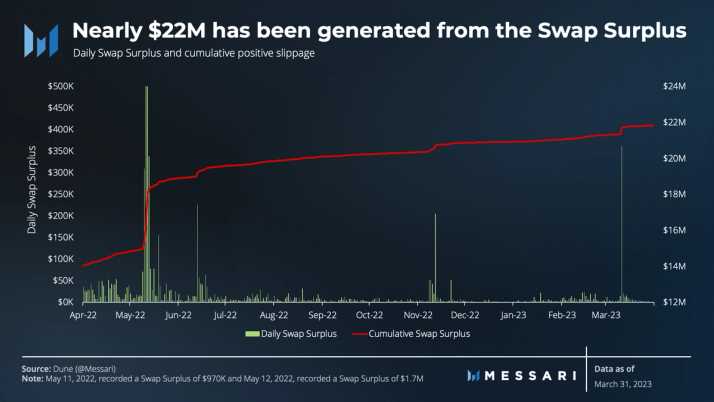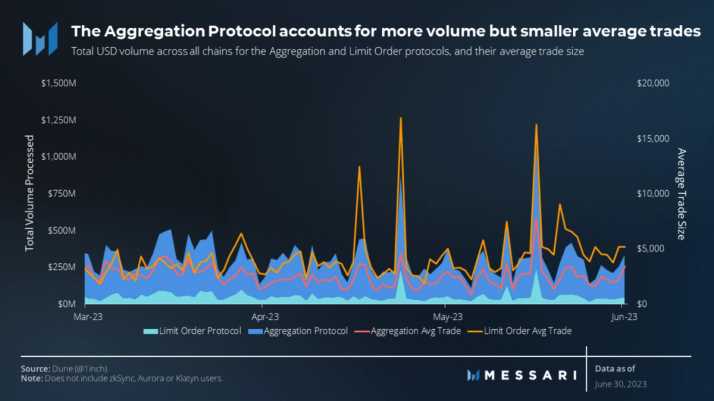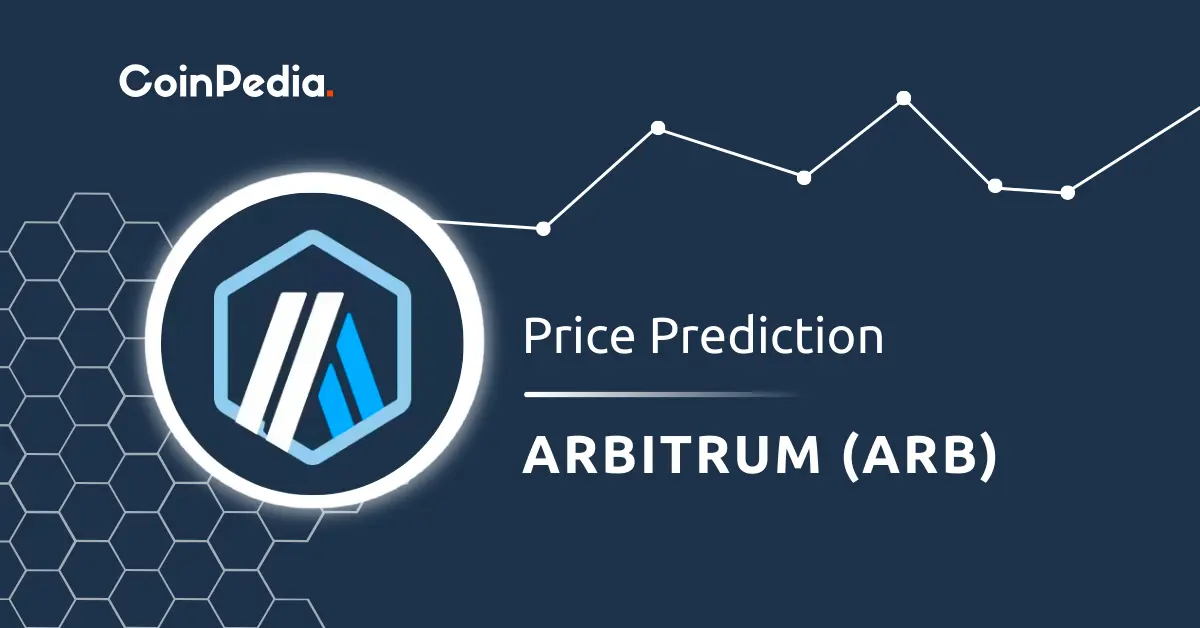
Decentralized finance (DeFi) has revolutionized the way we think about traditional financial systems. With its promise of transparency, security, and accessibility, DeFi has attracted a growing number of users and developers. However, one of the major challenges faced by DeFi users is the high transaction costs associated with using these platforms.
This is where platforms like 1inch come into play. 1inch is a decentralized exchange aggregator that helps users find the best prices by routing their trades through multiple exchanges. By doing so, 1inch reduces slippage and minimizes transaction costs for users. With its integration on the Arbitrum network, 1inch aims to further reduce transaction costs and improve the overall user experience of DeFi applications.
Arbitrum is a layer 2 solution for Ethereum that aims to scale the network and reduce congestion. By moving transactions off-chain and settling them on the Ethereum mainnet, Arbitrum offers faster and cheaper transactions for users. By integrating with Arbitrum, 1inch can leverage its scalability and low transaction costs to provide users with a more efficient and cost-effective trading experience.
Overall, the integration of 1inch on Arbitrum has the potential to significantly impact the DeFi ecosystem. By reducing transaction costs, 1inch makes DeFi more accessible to a wider audience, attracting new users and driving further adoption. As the DeFi space continues to evolve, platforms like 1inch will play a crucial role in improving user experience and advancing the adoption of decentralized finance.
Arbitrum: Exploring the Layer 2 Scaling Solution

With the rapid growth of decentralized finance (DeFi) applications, scalability has become a pressing issue on the Ethereum network. As transaction fees and congestion continue to rise, users are in need of a reliable and cost-effective solution. This is where Arbitrum, a Layer 2 scaling solution, comes into play.
Arbitrum is a rollup technology that aims to enhance the scalability of Ethereum by processing transactions off-chain and submitting a summary of those transactions to the Ethereum mainnet. By doing so, Arbitrum significantly reduces transaction fees and improves the overall user experience.
The key concept behind Arbitrum is the aggregation of many transactions into a single batch, which is then verified and sent to the Ethereum mainnet. This batching technique allows Arbitrum to process a large number of transactions in a more efficient and cost-effective manner.
One of the main advantages of Arbitrum is its compatibility with existing Ethereum smart contracts. Developers do not need to rewrite their contracts or modify their code to use Arbitrum. This makes it easier for DeFi projects to integrate and benefit from the scalability provided by Arbitrum.
Arbitrum also offers security guarantees by leveraging Ethereum’s robust security model. The transactions processed by Arbitrum are fully backed by Ethereum’s underlying consensus mechanism, ensuring the integrity and immutability of the data.
Furthermore, using Arbitrum does not limit users’ access to the Ethereum network. Users can still interact with other Layer 2 solutions and decentralized applications (dApps) on the Ethereum mainnet while enjoying the benefits of lower transaction costs provided by Arbitrum.
In summary, Arbitrum is a Layer 2 scaling solution that addresses the scalability challenges faced by the Ethereum network. By utilizing rollup technology and batch processing, Arbitrum significantly reduces transaction fees and improves the overall user experience. Its compatibility with existing Ethereum smart contracts and security guarantees make it an attractive option for DeFi projects looking to enhance their scalability.
The Impact: Reducing Transaction Costs and Increasing Efficiency

As the popularity of decentralized finance (DeFi) continues to grow, so does the demand for more efficient and cost-effective solutions. One of the main challenges faced by DeFi users is the high transaction costs associated with using the Ethereum blockchain. This is where 1inch comes in.
1inch is a decentralized exchange aggregator that allows users to find the most optimal route for swapping tokens across multiple platforms. By leveraging the capabilities of Arbitrum, a Layer 2 scaling solution for Ethereum, 1inch is able to significantly reduce transaction costs and increase the efficiency of token swaps.
With traditional Ethereum transactions, users often face high gas fees and long confirmation times. These fees can vary greatly depending on network congestion and other factors, making it difficult for users to accurately predict how much a transaction will cost. This can be especially problematic for smaller traders and investors who may be deterred by the high fees.
By using the Arbitrum protocol, 1inch is able to offload the majority of the transaction processing to the Layer 2 network, which operates separately from the Ethereum mainnet. This allows 1inch to significantly reduce gas fees and increase transaction speed, resulting in a more cost-effective and efficient trading experience for users.
In addition to reducing transaction costs, 1inch also improves the efficiency of token swaps. By aggregating liquidity from multiple decentralized exchanges, 1inch is able to find the most optimal route for swapping tokens, ensuring users get the best possible rates. This helps users save money on fees and potentially increase their overall returns.
Furthermore, 1inch’s integration with Arbitrum enables users to take advantage of other Layer 2 benefits, such as near-instant transaction confirmations and increased scalability. This not only improves the overall user experience but also opens up new opportunities for DeFi applications and protocols.
In conclusion, 1inch’s integration with Arbitrum has a significant impact on reducing transaction costs and increasing efficiency for DeFi users. By leveraging the capabilities of Layer 2 scaling solutions, 1inch is able to provide users with a more cost-effective and efficient trading experience, ultimately driving the adoption of decentralized finance.
Question-answer:
How does 1inch reduce transaction costs for DeFi users on Arbitrum?
1inch reduces transaction costs for DeFi users on Arbitrum by optimizing the routing of trades across different liquidity sources, finding the most cost-effective path for the given transaction.
Does 1inch work with all tokens and liquidity sources on Arbitrum?
Yes, 1inch works with all tokens and liquidity sources on Arbitrum. It aggregates liquidity from various decentralized exchanges and automated market makers, allowing users to access the best rates for their trades.
What are the benefits of using 1inch on Arbitrum?
Using 1inch on Arbitrum offers several benefits, including reduced transaction costs, improved liquidity, and better trading execution. Additionally, 1inch provides access to a wide variety of tokens and liquidity sources, giving users more options for their trades.
How does 1inch optimize the routing of trades on Arbitrum?
1inch optimizes the routing of trades on Arbitrum by leveraging its Pathfinder algorithm, which analyzes the liquidity and prices on different exchanges to find the most efficient path for a trade. This helps to minimize slippage and reduce transaction costs for users.